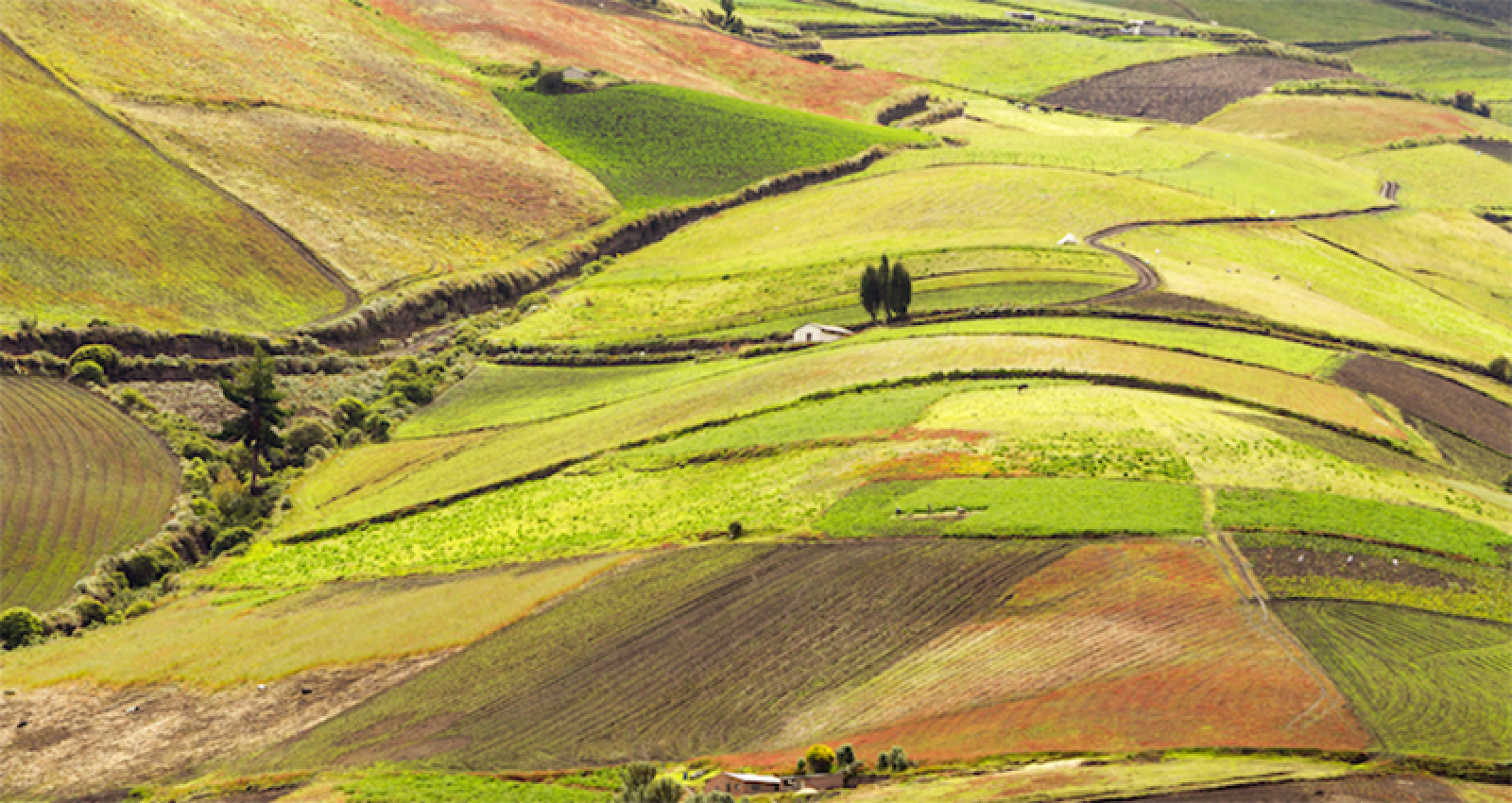Why Land Administration Matters for Development
What can governments and other development actors do to address the land administration challenge?
What can governments and other development actors do to address the land administration challenge?
By: Caroline HeiderApril Connelly
Despite [the] recognition that land rights are important, 70 percent of the world’s population still lacks access to proper land titling or demarcation.
The status of land rights can affect an individual’s access to economic opportunity. It is a strong incentive to make productivity enhancing investments on a personal and household level. Research by Landesa, for example, shows that women with secure land rights earn more income, are better able to feed their children and less likely to experience domestic violence. A woman’s right to access, control, transfer, exclude, inherit and otherwise make decisions about land and related resources, improves her livelihood opportunities, her influence over household income and expenditure, and her overall inter household bargaining and decision making power.
Secure land rights underpin many development objectives across multiple sectors. In agriculture, housing, transport, energy and extractives, land serves as a critical means of production. Clear and secure land rights can also play a role in reducing conflict and environmental degradation. And for private sector development, secure and transferable land rights are critical elements of the enabling environment.
In recent years, there has been increasing awareness of the relevance of land tenure issues to food security, climate change, rapid urbanization, informality and indigenous people’s rights. And yet, despite this recognition that land rights are important, 70 percent of the world’s population still lacks access to proper land titling or demarcation.
For this reason, land rights are reflected in many of the UN Sustainable Development Goals. They are explicitly linked to poverty eradication (SDG1), food security (SDG2) and gender equality and women’s empowerment (SDG5). Several other goals have implicit links to land-related outcomes.
So what can governments and other development actors do to address the land administration challenge?
The World Bank Group has a long history of developing and implementing projects aimed at securing land rights. As a global development institution, the World Bank Group is often a central player at the intersection of development and land administration or land rights.
The Independent Evaluation Group (IEG) looked at 14 World Bank Group land administration projects implemented between 1997 and 2011. IEG’s report, Lessons from Land Administration: A review of project performance assessments, highlights institutional tensions that the World Bank Group must navigate to more effectively address land administration issues and generate broader development outcomes to which land issues are a critical constraint.
Land issues are extremely complex and “best practices” are highly context specific. Past experience has shown that because of their complexity, land issues are best addressed through standalone land operations than as land components in multi-sectoral operations. IEGs review found that even among standalone land operations, projects tend to perform better when they are structured in a way that allows for making incremental improvements to the legal and policy framework, and incremental upgrades to the land administration infrastructure and enhancements to human resource capacity, over time. Care should be taken not to overload a single operation. Making land tenure more secure is a process not a single event. Establishing effective land administration systems requires medium to long term support. Given this, land projects need to be designed, and their expectations set, taking into account what is realistic for a single project to achieve.
On the other hand, while land issues underpin many development goals, addressing land alone is not sufficient for reaching many broader development outcomes. Reforms are also needed in non-land sectors, which can be challenging in their own right. Parallel operations are often more manageable than a single operation that tries to do everything.
The challenge for the WBG is to ensure that sufficient resources and space are provided to make progress on addressing complex and long term land issues, without overloading a single project. But also ensuring that they are not carried out in isolation. That they are appropriately coordinated and sequenced with reforms in non-land sectors so that broader development outcomes are achieved.
Based on our analytical work, IEG recently convened a panel of leading land experts from across the World Bank Group as well as experts in other sectors impacted by land issues. It was important to us – our panel and our audience – to bring together a diverse group to stimulate discussion of practitioners across different sectors and practices.
The panelists discussed the complexities involved in tackling land administration in developing countries and echoed many of IEG’s findings. They reiterated the importance of staying the course, noting that land issues require long-term commitment. The role of the private sector came under particular scrutiny, with some panelists noting the positive and problematic aspects that often accompany land-related private sector investments.
Panelists highlighted the necessity for ongoing stakeholder engagement, particularly between beneficiaries, civil society, private actors and governments; the need for investing in local land administration capacity, including effective monitoring systems; and the recognition that land administration issues will become even more pronounced on account of growing urbanization, climate change, and increased migration among other shifts. Read IEG’s report on land administration, and join the discussion by letting us know in the comments section below how land administration issues impact development and what governments and development partners can do to address the challenges.


Comments
Dear Madam/Sir: Land is…
Dear Madam/Sir: Land is politics, different groups design their land policy to use land as a tool for retaining in power. Some groups do not have the knowledge of sustainability, environmental and social impacts. I suggest the Bank shall undertake routine studies in each developing country to find best practices and design best strategies and action plans. I my self would like to participate if possible conditions are created. Thank you
The Bank did make efforts…
The Bank did make efforts for e.g in Pakistan. The Bank unfortunately is weak in implementation of matters which have political implications. Also for such matters Bank should strictly involve expatriate staff only with strong personalities. Land holding is more land grabbing now on the poverty ridden countries.
Am fully in agreement with…
Am fully in agreement with the overall argument. What is not coming clear is the tendency of conflating security of tenure with titling. It is in this interseection that development experts lose sight of a complexity and multiplicity of ways in which different peoples relate to land. Everyone is put in a straight jacket of 'owning' land whereas there other conceptions out there which do not fit the titling paradigm. Part of the African land ethic is land vesting in groups (such as families) rather than individuals. Notwithstanding that part of this ethic entails people belonging to the land rather than the other way round.
Does world poverty really…
Does world poverty really happen in commons land ownership or in money-based economies once people are pushed off the land and their lifetime commons tenancy rights? This is not clear. Are people living in traditional commons and land-based economies really in poverty when all their basic needs are met but they don't have manufactured goods? Is it not that poverty happens once land is privatized and its former commons tenure owners are in urban slums, with low-wage cash jobs, the proverbial $1 or $2 a day cash in a cash based economy? In the commons-based economy, they needed no cash for basic needs. For example, privatizing the cooperative farms (ejidatarios) in Mexico under NAFTA is what sent millions to undocumented work in the US. The Mexican revolution did not take aristocratic land and privatize it but created cooperative farms, i.e. returned it to the commons. Who has truly benefited from this privatization of land? It is unclear what land rights really refers to here, and what poverty really is here.
I believe your approach is…
I believe your approach is correct, that titling and demarcation, as well as the ability to transfer the tenure with the same rights of use are essential. I believe the key to a sustainable economy is to make the title conditional upon a payment of the land's rental value. This eliminates the temptation for confiscatory taxes like sales and income, and insures that the land will be put to its full use, or transferred to others who will.
Non use and underuse of land is the root cause of unemployment, low wages, and a shortage of housing. The more of the rental value of land is collected, the more jobs, the more housing, and the more public revenue is available for infrastructure and public service, which enables a greater population, a more efficient cooperation, and higher land values.
The World Bank Group needs…
The World Bank Group needs to control speculation happening over land price. Land policy needs to be formed in such a way that speculation of land and therefore land price can be controlled. The price of Land property shooting very high. It is not affordable for a common man to purchase a house. House is considered as a basic need of an individual and also basic right. If it is an open market than government should make a win-win situation. The government should help financially to those who can not afford to purchase his/her home. So, it will remain open market where buyers or sellers will have a secure right to buy or sell land and an individual will be able to fulfil his/her basic need by purchasing a house.
I would like to peruse a…
I would like to peruse a course on land administration online. I am currently employed as an Assistant Land Administrator and would like to have a programme that will enhance and advance my career.
Regards
Pamela
Add new comment